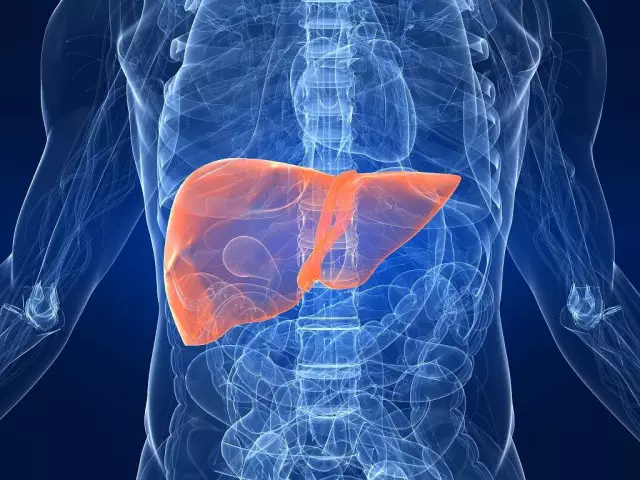- Author Rachel Wainwright wainwright@abchealthonline.com.
- Public 2023-12-15 07:39.
- Last modified 2025-11-02 20:14.
Drugs that reduce appetite
Drugs that reduce appetite (anoretics) help in the fight against excess weight in case of impossibility to adhere to any of the diets due to the constant feeling of hunger and increased appetite.

In modern pharmacological practice, according to the active substance and the mechanism of action, two types of drugs are distinguished that reduce appetite:
- Adrenaline - affecting the nerve endings, causing an influx of activity, excitement, stress, and, as a result, a decrease or complete loss of appetite;
- Serotonin - acting on impulses emanating from the brain, regulating sleep, psycho-emotional state and changing eating behavior. Serotonin blocks the body's need for fats and carbohydrates without affecting protein intake.
Medicines that reduce appetite
Appetite suppressants are complex chemical compounds. Taking such drugs triggers complex chemical reactions in the body that affect the functioning of the brain - it is there that the zones responsible for appetite are located.
Since the middle of the 20th century, such drugs have been officially used in medical practice with virtually no restrictions. Over time, the manifestation of the negative consequences of the uncontrolled use of anoretics became widespread, and in some cases led to death. Analysis of the consequences of taking medications that reduce appetite showed the presence of the following side effects:
- Adrenaline drugs, phenamine and its derivatives (close to amphetamines) - worsen the functioning of the nervous system, causing insomnia, arrhythmia, increased heart rate, increasing blood pressure. Addictive and addictive with prolonged use. Drugs in this group are currently practically prohibited;
- Serotonin drugs - can cause impaired brain function, pulmonary hypertension, provoke cardiovascular failure and heart disease. Most drugs have been banned since 1999.
Nutritionists accept appetite suppressants in cases of severe obesity as the first step in the transition to proper nutrition. The pharmaceutical market today offers:
- Drugs similar to fenamine in the mechanism of action - mazindol (Sanorex), phenylpropanolamine (Trimex, Dietrin), phentermine;
- Drugs of the serotonin group - sertraline (Zoloft) and fluoxetine (Prozac), primarily antidepressants, widely used in psychiatric practice. The appetite-reducing effect of these drugs is a side effect. In this case, obesity is treated by prescribing psychotropic drugs to a mentally healthy person;
- Sibutramine (Meridia) is the most popular and so far allowed in most countries anoretic, combining adrenaline and serotonin effects, accelerating metabolic processes. According to manufacturers, it helps to reduce weight and stabilize it in the future. Such negative side effects of taking Meridia as nausea, constipation, rapid heart rate, insomnia and an impressive list of restrictions are a serious reason to think about the need to take this drug.
All appetite suppressants are currently available on prescription only.
Drugs that reduce appetite, reviews
When taking serotonin drugs that reduce appetite, according to reviews, there is no desire to consume carbohydrates and fats. Flour, fatty, sweet food is disgusting, while the need for protein food remains the same. Other drugs completely suppress appetite, often you have to force yourself to eat even a small amount of food, which almost immediately causes a feeling of fullness.
Unfortunately, the presence of such positive effects completely neutralizes the negative consequences to which the intake of anorestics can lead.

Taking drugs that reduce appetite, according to reviews, causes:
- Increased irritability, general irritability and insomnia;
- Persistent dry mouth, thirst, nausea;
- Sometimes an allergic rash, decreased libido, problems with urination.
Since the problems of excess weight associated with increased appetite are relevant to the modern world, the pharmaceutical industry, using the latest advances in science, is developing new anoretics in which negative side effects will be minimized.
Even in the absence of contraindications, anoretics should be used with caution, only on the recommendation and under the supervision of the attending physician. It is important to understand that any drugs that reduce appetite do not act locally, solely suppressing hunger, but affect the functionality of the nervous system as a whole, putting mental and physical health at risk.
YouTube video related to the article:
Found a mistake in the text? Select it and press Ctrl + Enter.






